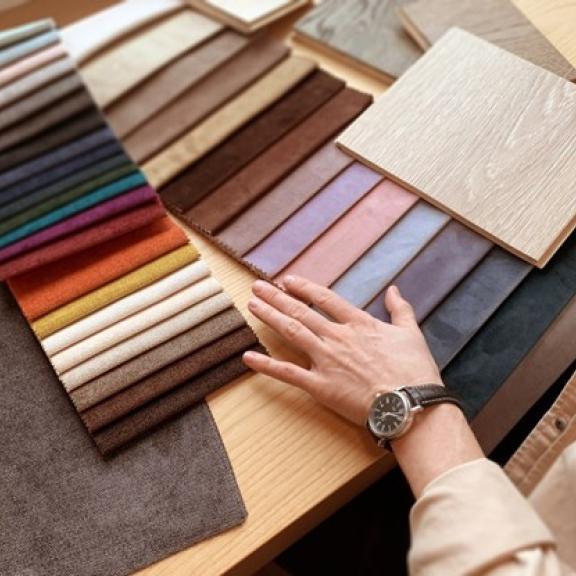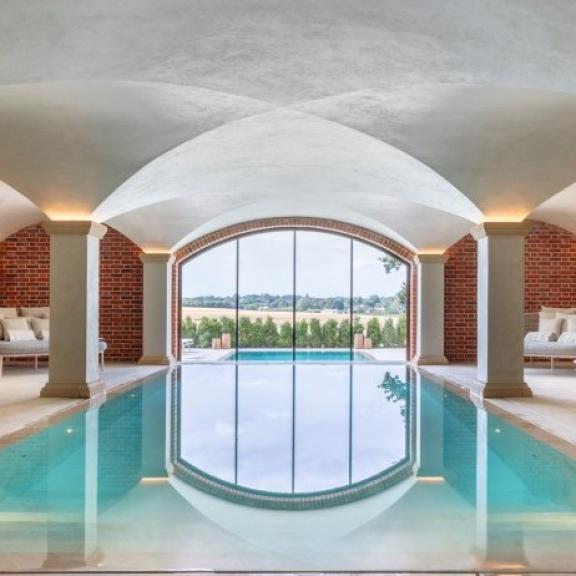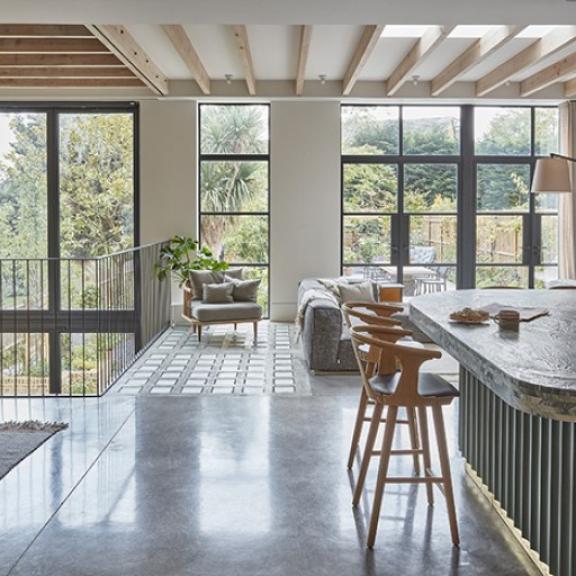Designer Q&A: Jenny Gibbs OBE
Founder of KLC School of Design and past president of the BIID Jenny Gibbs OBE talks to us about design education, the role of interior designers, and the Design Changes Lives Foundation
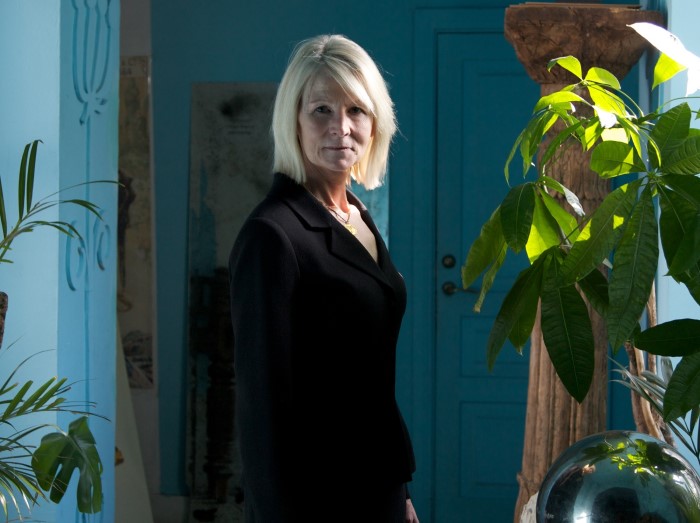
Jenny Gibbs OBE founded KLC School of Design in 1982 where she was principal until her recent retirement. As principal, and as a past president of the BIID, she has always championed professionalism in interior design. She also established the Design Changes Lives Foundation to raise awareness of design as a career, and widen access to the profession by providing study bursaries.
She was awarded an OBE in 2020 for services to higher education and the interior design industry. She continues to be involved with KLC as a strategic consultant, while also becoming a business mentor for the Prince’s Trust.
We asked Jenny about her career and future plans.
You established KLC School of Design in 1982. Can you tell us a little about what led you to do so?
A number of friends had asked me to help refurbish their homes having seen one or two of my own projects. While this was good for my ego, I was very aware that there were huge gaps in my knowledge. When I couldn’t find the sort of practical, down to earth course I needed, I decided to organise one of my own.
I put together a team of experts (an architect, an interior decorator, and a lighting specialist) who encouraged me to go the extra mile and do it properly. We had prepared plans for students to work with, beautiful samples and materials and a smart bound set of notes to take away. I also ran several one-day workshops on decorative paint finishes, stencilling and bed and window treatments which were all popular at the time. I hadn’t really intended to set up a school as such but after just one term there was so much interest that it grew organically from there.
What are the major differences between the school back then and now?
Things have changed so much over the years that it is quite hard to quantify. The school now offers a range of courses from a one-day course for fun, or to put a toe in the water, right through to a full degree in interior design. As potential students looked for more flexibility to accommodate work or family commitments, different study methods, including part time, online and blended learning, were developed.
Garden courses were introduced in the 1990s with part time and online options and the on-site diploma has become one of the most popular of all KLC courses. Although these students are now based in the school’s Design Centre studios, the partnership with Historic Royal Palaces has been retained and students have the benefit of a study week in the Hampton Court Palace Gardens.
Although we were one of the very first schools or colleges to highlight environmental considerations, this has now become an integral part of our design programmes. Over the last 20 years interior design has become established as a recognised profession in its own right. We have always worked to support this, placing great emphasis on professionalism, professional practice, and communication skills. Digital advances have also changed the way our students work entirely. Course content has been adapted to reflect advances in technical areas such as lighting and the increasing interest in psychological, holistic, and sensory aspects of design. Fostering creativity remains of paramount importance.
What are the unique qualities of KLC as a design education provider?
Most schools and colleges these days put great emphasis on the student experience and the amount of support they provide, but this has always been an absolute priority at KLC. Student feedback shows just how much this is appreciated thanks to the exceptional dedication and care given by staff.
Partnerships and industry contacts have helped to ensure that course content is up to date with current practice methods, and the mentoring and inspirational talks given by practising interior designers provide some of the course highlights. KLC has always been career focused with an outstanding career service. It is the extensive network of industry contacts who help to ensure that graduate employment statistics remain exceptionally high.
It has been the understanding of the value of design, how well-designed spaces can improve the lives and wellbeing of users and contribute to the success of businesses and the economy, that has set KLC apart. As part of this approach, wherever possible, we give students the opportunity to work on real community-based projects, such as schools and hospitals. This is an exercise which both students and tutors find extremely fulfilling.
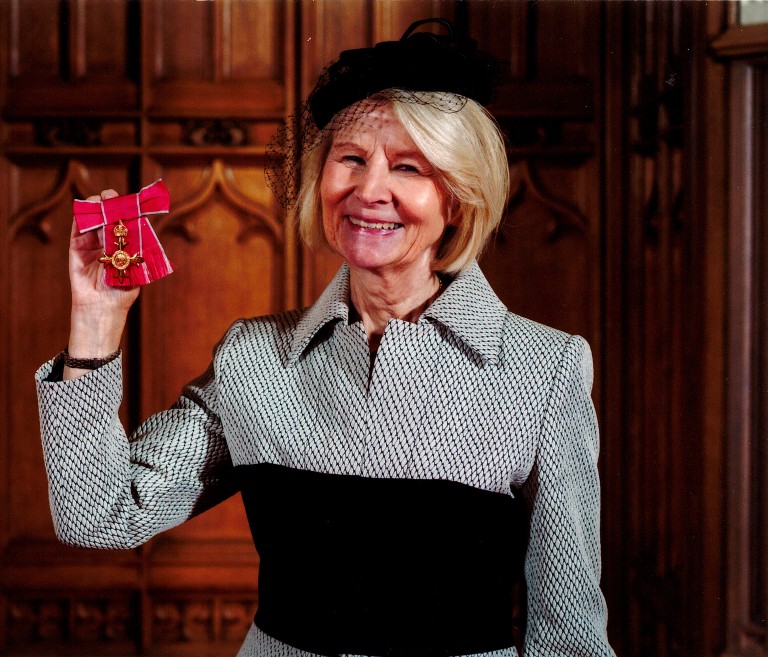
You are a past president of the BIID, could you talk a little about what the BIID means to you?
The BIID is the only industry body totally dedicated to interior designers. When I became president, it had only recently been given institute status, but it has been wonderful to see how the levels of support offered to its members have increased tenfold. From the monthly newsletters, regular client referral opportunities, CPD provision and the recent launch of the highly successful design awards, the institute is helping to drive the profession forward and advance professional standards.
During my time on the council, we developed the professional pathway to provide new members with the support and structure on which to build their knowledge and experience through to full professional status. It is very rewarding that we were able to make this lasting contribution.
What do you think are the major challenges for the interior design industry looking forward?
As interior design is generally perceived as a luxury, the current dire economic situation is perhaps the immediate challenge. Practices need to be able to differentiate their services to stay competitive. In an increasingly regulated and hard-nosed world, clients are becoming more and more knowledgeable and well informed and have ever high expectations.
The pandemic has brought new challenges, with an increased need to focus on health and wellbeing in interiors and practice staff wanting the flexibility to work at home – not ideal for what is essentially a people business. It also makes it difficult to keep up staff development which is so crucial in the professional design world.
It is well understood that designers have a pivotal role to play in helping to save the planet by focusing on the circular economy, sourcing with the utmost care and championing indigenous materials and local crafts. This is only going to become more vital over time.
Can you tell us about the Design Changes Lives Foundation which you established?
The two main aims of the Design Changes Lives Foundation are to raise awareness of design as a meaningful career with talks, articles and design competitions and to provide bursaries for students who might otherwise not be able to study at KLC. It has been immensely rewarding to discover and support new talent and to see bursary recipients grow and flourish and go on to have successful careers in the industry.
The foundation has also given some financial support to community design projects that students have worked on.
What does the future hold for you as you retire from the position of principal of KLC?
KLC recently merged with West Dean College, so the combined institutions now provide courses in fine art, conservation, and design. This opens all sorts of exciting opportunities for joint projects and developments, and I am currently supporting this as a strategic consultant. While I must admit it is rather nice to be able to take life a little more gently, I do a like a good project! I have been accepted by the Prince’s Trust as a business mentor and am looking forward to the chance to support fledgling business ideas and ventures. I have some other ideas I am mulling over but it goes without saying that I am always happy to support the BIID in any way I can.
Take a look at our designer Q&As with Susie Rumbold, Sophie Ashby, Sue Timney, Staffan Tollgård, Jenny Weiss and Helen Bygraves, Kelly Hoppen, Shalini Misra, Katharine Pooley, Brian Woulfe, and Christopher Dezille.
Explore the latest, member-exclusive, templates designed to make your life easier.
What happens to material samples once a project comes to an end? Discover Second Life Samples with Swatchbox.
With the launch of the new commercial category for this year's awards, get inspired by these award-winning commercial projects
Explore new resources from the BIID. Seeing a padlock? Just login or become a member to view.
With the launch of the new residential category for this year's awards, get inspired by these award-winning homes
Explore new resources from the BIID. Seeing a padlock? Just login or become a member to view.

